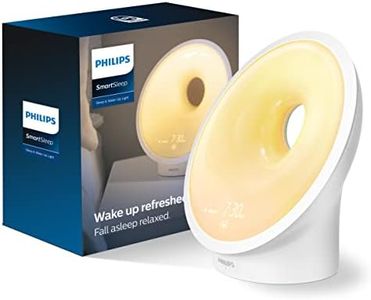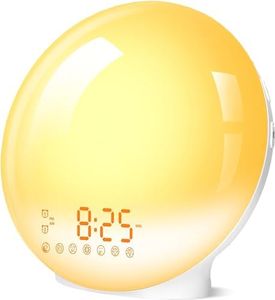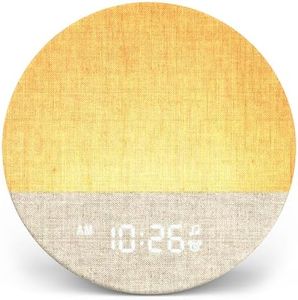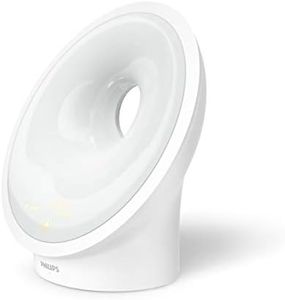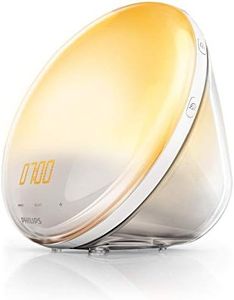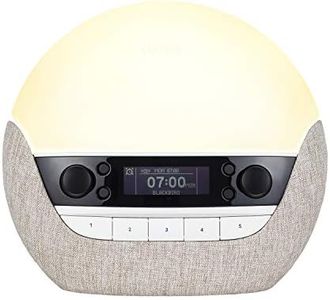We Use CookiesWe use cookies to enhance the security, performance,
functionality and for analytical and promotional activities. By continuing to browse this site you
are agreeing to our privacy policy
7 Best Sunrise Alarm Clocks
From leading brands and best sellers available on the web.By clicking on a link to a third party's website, log data is shared with that third party.
Buying Guide for the Best Sunrise Alarm Clocks
Choosing a sunrise alarm clock is all about finding a device that helps you wake up more naturally and gently, using gradually increasing light instead of a sudden sound. These clocks are great for people who find traditional alarms jarring, have trouble with dark mornings, or want to start their day feeling more refreshed. To pick the best sunrise alarm clock for your needs, it’s good to understand the key features and how they can make a difference for your morning routine.Light Brightness and GradationLight brightness refers to how strong or intense the lamp in the clock can get, and gradation covers how smoothly the light increases as the alarm time approaches. This matters because everyone has different sensitivities to light—some people wake up easily with a soft glow, while others need a much brighter light. Sunrise clocks usually let you set the maximum brightness and the speed of the light increase; lower settings are gentle and best for lighter sleepers, while higher settings suit heavy sleepers or rooms with heavy curtains. Think about how dark your bedroom is and how much help you need waking up to choose the right light range and gradual increase time.
Alarm Sound OptionsAlarm sound options refer to the types of noises the clock can make when it’s time to get up—like gentle nature sounds, radio, or traditional beeps. This is important because the sound you wake up to can set the tone for your whole day. If you're a light sleeper, softer nature sounds or melodies might be enough, but if you need a more forceful push, pick a clock that also offers louder or more persistent sounds. Consider what kind of sounds make you feel good or help you wake up most reliably.
Sunset SimulationSunset simulation is a feature where the clock can gradually dim the light in the evening, helping you wind down naturally before bed. Not everyone needs this, but it’s great if you have trouble falling asleep or want to improve your nighttime routine. If winding down is difficult for you, look for a clock with customizable sunset settings so you can decide how long the fade-out lasts and how dim the light gets.
Display and ControlsThe display and controls refer to how you interact with the clock—how visible the screen is at night, whether it dims automatically, and how easy it is to set the time and alarms. This is important because some people are bothered by bright displays in a dark room, while others want to see the time clearly. Look for a model that has adjustable display brightness and simple, accessible buttons. If you like things straightforward and easy to use, prioritize clocks with intuitive controls and readable screens.
Backup Battery or Power SourceThe backup battery or power source is about whether the clock continues to work if there’s a power outage. This matters if you live in an area where power cuts happen or you simply want peace of mind that your alarm will always go off. Some clocks work on both battery and wall power, while others plug in only. If you rely heavily on being woken at a certain time or don’t want to risk missing the alarm, choose a clock with a backup power option.
